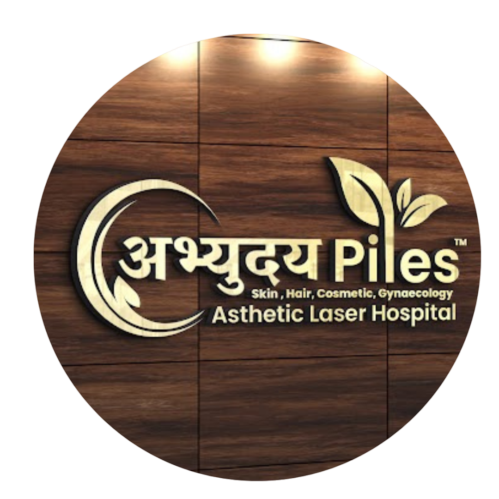Anal fissures, a painful condition characterized by small tears in the lining of the anal canal, can significantly impact one’s quality of life. Common causes include straining during bowel movements, chronic constipation, and trauma to the anal area. In severe cases, anal fissures may require surgical intervention to promote healing and alleviate symptoms.
Anal fissure surgery aims to repair the damaged tissue and improve anal function, but the journey to full recovery doesn’t end with the operation. Proper post-surgery care is crucial for facilitating healing and minimizing complications. This comprehensive care regimen is essential for patients, where access to specialized treatment, like anal fissure surgery, is vital for managing this condition effectively.
Understanding the importance of anal fissure recovery is paramount. Complications such as infection, delayed healing, and recurrence can prolong discomfort and hinder daily activities. Hence, adhering to post-surgery care guidelines is essential for a smooth recovery process. By prioritizing proper care and adopting healthy habits, individuals can optimize their recovery and regain their quality of life post-surgery. In this blog post, we’ll delve into the key aspects of post-surgery care for anal fissures, providing valuable insights and tips to aid patients and beyond on their journey to recovery.
Understanding Anal Fissure Surgery
Anal fissure surgery aims to repair the torn tissue in the anal canal, promoting healing and alleviating symptoms. There are several surgical techniques employed, including:
- Lateral Internal Sphincterotomy (LIS): This procedure involves cutting a small portion of the inter, reducing pressure on the fissure and promoting healing.
- Fissurectomy: Involves the surgical removal of the anal fissure itself, often combined with other procedures like sphincterotomy.
- Botulinum Toxin Injection: Botulinum toxin, commonly known as Botox, can be injected into the anal sphincter muscle to relax it
Risks and Benefits Associated with Surgery:
- Risks:
- Infection at the surgical site
- Bleeding
- Incontinence or changes in bowel movements
- Rare complications like anal fistulas or abscesses
- Benefits:
- High success rates in promoting healing and symptom relief
- Reduced pain and discomfort associated with anal fissures
- Improved quality of life for individuals suffering from chronic anal fissures
Tips for Preparing for Surgery
Before undergoing anal fissure surgery, it’s essential to adequately prepare both mentally and physically. Here are some crucial tips:
Consultation with Healthcare Provider:
Schedule a consultation with a healthcare provider specializing in anal fissure care in Nagpur. During this appointment, discuss your medical history, current symptoms, and treatment options. Your healthcare provider will assess your condition and recommend the most suitable surgical approach based on your individual needs.
Pre-operative Instructions and Preparations:
Follow any pre-operative instructions provided by your healthcare provider diligently. This may include:
- Fasting before surgery to prepare the digestive system.
- Discontinuing certain medications that may interfere with the surgical procedure or recovery process.
- Arranging for transportation to and from the hospital or surgical center.
- Preparing your home for post-surgery recovery, including setting up a comfortable resting area and stocking up on necessary supplies like pain medications and dietary items recommended for recovery.
By adhering to these preparations, you can ensure a smoother surgical experience and enhance your chances of a successful anal fissure recovery.
Post-Surgery Care Guidelines
After undergoing anal fissure surgery, proper post-operative care is essential for a smooth recovery and optimal anal fissure recovery. Here are key strategies to facilitate healing:
Pain Management Strategies:
- Follow the pain medication regimen prescribed by your doctor to alleviate discomfort.
- Use ice packs and sitz baths to reduce swelling and soothe the anal area.
Dietary Considerations:
- Maintain a high-fiber diet to promote regular bowel movements and prevent constipation, which can aggravate anal fissures.
- Stay hydrated by drinking plenty of water and avoiding dehydration, which can exacerbate post-surgery discomfort.
Proper Hygiene Practices
- Practice gentle cleansing of the anal area with mild soap and water after bowel movements to prevent infection.
- Avoid using irritants like perfumed products, which can cause irritation and delay healing.
Rest and Activity Recommendations:
- Balance rest with light physical activity to promote circulation and prevent stiffness.
- Avoid heavy lifting or strenuous activities that may strain the surgical site.
Monitoring for Complications:
- Be vigilant for signs of infection or excessive bleeding, such as increased pain, fever, or unusual discharge.
- Contact your healthcare provider immediately if you experience any concerning symptoms or complications arise during your anal fissure recovery.
Coping with Emotional and Mental Health Challenges
During the process of anal fissure recovery, addressing emotional and mental health is as crucial as physical healing. Here are strategies to navigate this aspect of recovery:
Addressing Anxiety and Discomfort Associated with Surgery:
Acknowledge and validate feelings of anxiety or discomfort related to anal fissure surgery. Utilize relaxation techniques such as deep breathing or mindfulness to manage stress and promote emotional well-being.
Seeking Support from Loved Ones or Support Groups:
Lean on the support of loved ones for emotional encouragement and practical assistance during the recovery process. Consider joining support groups or online communities where individuals share experiences and offer mutual support for coping with anal fissures and surgery.
Strategies for Managing Stress During Recovery:
Engage in activities that promote relaxation and reduce stress levels, such as gentle exercise, hobbies, or meditation. Prioritize self-care practices to nurture both physical and emotional health throughout the anal fissure recovery journey.
Long-Term Recovery and Preventative Measures
As part of anal fissure recovery long-term care and preventive measures are essential for maintaining overall well-being and preventing recurrence. Here’s how to ensure a healthy future:
Follow-up Appointments with Healthcare Provider:
Attend scheduled follow-up appointments with your healthcare provider to monitor healing progress, address any concerns, and receive guidance on post-surgery care.
Incorporating Healthy Habits to Prevent Recurrence:
- Maintaining a Balanced Diet and Hydration: Consume a diet rich in fiber to promote regular bowel movements and prevent constipation, a common trigger for anal fissures. Stay hydrated by drinking an adequate amount of water daily.
- Regular Exercise and Proper Bowel Habits: Engage in regular physical activity to promote digestive health and maintain proper bowel habits. Avoid straining during bowel movements and establish a consistent toileting routine to minimize the risk of anal fissure recurrence. By prioritizing these healthy habits, individuals can support long-term anal fissure recovery and minimize the likelihood of future complications.
Conclusion
In conclusion, a successful anal fissure recovery hinges on diligent post-surgery care and a commitment to long-term well-being. By adhering to prescribed pain management strategies, dietary considerations, proper hygiene practices, and activity recommendations, individuals can navigate the recovery process with greater ease. Regular follow-up appointments with healthcare providers ensure ongoing monitoring and support for optimal healing.
It’s paramount for patients to prioritize self-care and heed medical advice to prevent complications and promote long-term anal fissure recovery. Embracing healthy habits, such as maintaining a balanced diet, staying hydrated, engaging in regular exercise, and fostering proper bowel habits, fosters resilience against recurrence. Abhyudaya Hospital stands ready to provide unparalleled care and expertise in anal fissure treatment in Nagpur, ensuring the best possible outcome for patients seeking relief and restoration of their quality of life.

